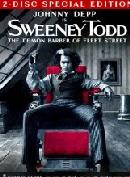HOME PAGE
SITE GUIDE
SEARCH
ADVERTISING AT CURTAINUP
REVIEWS
FEATURES
NEWS
Etcetera and
Short Term Listings
LISTINGS
Broadway
Off-Broadway
NYC Restaurants
BOOKS and CDs
OTHER PLACES
Berkshires
London
California
New Jersey
Philadelphia
Elsewhere
QUOTES
TKTS
PLAYWRIGHTS' ALBUMS
LETTERS TO EDITOR
FILM
LINKS
MISCELLANEOUS
Free Updates
Masthead
Writing for Us
A CurtainUp Los Angeles Review
Bury the Dead
|
How do you say goodbye to a dead brother? Wish him an easy grave.— Katherine Driscoll, sister of Pvt. Tom Driscoll
|
Shaw wrote his play in 1936, when the world was still struggling to overcome the aftermath and consequences of that first world war, and before it got sucked into the inevitability of World War II. The play was called Bury the Dead, and it became a classic, along with films such as All Quiet on the Western Front, Johnny Got His Gun, What Price Glory? and Grand lllusion.
It's a simple story, really, about six dead soldiers who refuse to allow themselves to be buried. Tossed into a trench dug by two of their buddies, they stand up, one by one, and claim the right to not be covered up and forgotten. "I didn't chose to give my life for four yards of bloody mud," says one. "Maybe there's too many of us under the ground now. Maybe the earth can't stand it no more," says another. "You got to change crops sometime." And another offers his own protest: "We are reclaiming our home; we didn't ask for permission to leave."
In response, the generals are nearly apoplectic. The command "Lie down and allow yourselves to be buried!". . . "The burden of war is on your shoulders; men must be buried and forgotten."
The men, in turn, offer poignant reasons for not wanting to obey those orders. Johnny, a farmer (played by Andrew Wheeler), offers a soliloquy about the smells of the earth and the crops on a summer's day. Henry (John Pick) rhapsodizes about women, those he's known and the ones he'll never get a chance to meet, and charges that "the earth still owes me." A third soldier (Brandon Hanson), bemoans the fact that there are "too many books I haven't read; too many places I haven't seen."
In desperation, the generals bring in the women who are significant to the dead men---women who, they hope, will be able to persuade the men to lie down to be interred. Though the wives, girlfriends, a sister, a mother are horrified at the sight of her dead loved one, each does her part in trying to cajole her loved one to take his place in the earth. Especially moving is Annemette Andersen, the mother of a 20-year-old (Jesse Luken) who has had most of his head blown away. She pleads with him to remove his bandages so she can see him for one last time, and when he finally does remove them, her reaction brings a chill to everyone in the theater.
Bury the Dead is a grim play, but so well acted by the Actors' Gang and so well directed by Matthew Huffman that it grips you even as it chills you. Its battlefield setting by Francois-Pierre Couture is austere and effective, and the camouflage and battle fatigues of the soldiers, designed by Shannon Kennedy, are fine. The uniforms of the officers, however, belong somewhere between The Chocolate Soldier and Nelson Eddy's Mountie costume in Rose Marie.
Irwin Shaw used his novels and short stories as vehicles for his concerns about war, about civil liberties, and about McCarthyism. Falsely accused of being a Communist and placed on Hollywood's black list, he left the United States for Europe, where he lived for 25 years. Although he died in 1984, he would probably not be surprised to learn that Bury the Dead is as timely and relevant now as it was when he wrote it. He would probably also be delighted to know that it was being presented by The Actors' Gang, a company known for its rambunctious staging of plays with political messages of which he would thoroughly approve.
Editor's Note: To underscore this play's enduring appeal, one of New York's outstanding Off--Broadway theater companies, the Transport Group, will be doing a revival. It will be directed by the excellet Joe Calarco and will star Donna Lynne Champlin. Watch for our review and for performance details see our Off-Broadway Listings.
|
Bury the Dead By Irwin Shaw Directed by Matthew Huffman Cast: Seth Compton (Pvt. McGurk), Rick Gifford (Pvt. Butler), Aaron Conte (Sargeant), Simon Anthony Abou-Fadel (Captain), Bob Kundrat (Doctor), George Ketsios (lst General), Adam Jefferis (2nd General), Erin Anderson (Bess Schelling), Andrew Wheeler (Pvt. John Schelling), John Pick (Pvt. Henry Levy), Stephanie Carrie (Joan), Brandon Hanson (Pvt. Morgan), Heather J. Thomas (Julia Blake), Mary Mackey (Katherine Driscoll/Whore), Colin Golden (Pvt. Tom Driscoll), Jesse Luken (Pvt. Dean), Annemette Andersen (Mrs. Dean), Donna Jo Thorndale (Martha), Brian Allman (Pvt. Webster), Jon Bruno (Radio voice). Set Design: Francois-Pierre Couture Lighting Design: Jacqueline Reid Costume Design: Shannon A. Kennedy Sound Design: Will Schuessler Running Time: 90 minutes without intermission The Actors' Gang, Ivy Substation, 9070 Venice Blvd., Culver City, (310) 838-4264, www.theactorsgang.com From : 08/23/08 to 09/13/08; opening 08/23/08 Tickets: $25. Students/seniors/members of the military/veterans $20. Reviewed by Cynthia Citron based on 08/29/08 performance |
|
REVIEW FEEDBACK Highlight one of the responses below
Paste the highlighted text into the subject line: Feel free to add detailed comments in the body of the email . |







